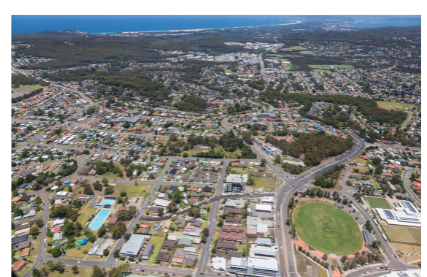Home Loans for Non-Residents: What You Need to Know Before Buying
Buying a home is a major milestone, but home loans for non-residents come with unique challenges. Non-residents—including foreign nationals, Australian expats, and temporary visa holders—often face stricter lending criteria, higher deposit requirements, and additional stamp duty costs.
Experienced mortgage brokers, like Mortgage Brokers Newcastle, make the process easier by connecting non-residents with select lenders and guiding them through eligibility requirements. With expert support, non-residents can secure competitive interest rates and find the right loan options—without the hassle.
In this guide, we’ll cover everything you need to know about non-resident home loans, from eligibility criteria to expert advice on increasing approval chances.
🏡 Need Home Loan help?
We've helped thousands of locals.
Just call us on (02) 4920 6468
Or visit our website homepage
What Are Home Loans for Non-Residents?
Home loans for non-residents are designed for foreign nationals, Australian expats, and temporary visa holders who want to buy residential property or an investment property in Australia. These loans allow non-residents to access financing from Australian banks and non-bank lenders, although with stricter requirements than standard home loans.
How They Compare to Traditional Home Loans
- Higher Deposit Requirements – Non-residents typically need a larger deposit, often 20-40% of the purchase price, compared to 5-10% for Australian citizens and permanent residents.
- Stricter Lending Criteria – Lenders assess visa status, foreign income, and borrowing capacity more cautiously.
- Additional Stamp Duty Costs – Foreign citizen stamp duty surcharges apply, making property purchases more expensive for non-residents.
Newcastle Property Market in 2025: Insight into Non-Resident Homeownership
In 2024, the median price for units and apartments in Newcastle stood at $837,500, making it an attractive yet competitive option for non-resident buyers. This pricing reflects Newcastle's growing popularity within the Australian property market, particularly for investment property purchases.
Looking ahead, the Newcastle property market is expected to experience moderate growth in 2025, driven by sustained demand and limited supply. For non-resident home loans, this steady market expansion presents an opportunity to secure properties with the potential for rental income or long-term value increases.
Newcastle offers a blend of affordable and high-end options in suburbs like
Barnsley,
Georgetown, and
Stockton. These suburbs are ideal for foreign nationals, Australian expats, and temporary residents looking for both residential property and investment opportunities.
Types of Home Loans Available to Non-Residents with Broker Support
Non-residents in New South Wales face unique challenges when applying for home loans, including stricter lending conditions and higher deposit requirements. However, with the help of experienced mortgage brokers, non-residents can access a range of loan options tailored to their visa status and financial profile.
Standard Variable Rate Home Loans
These variable-rate loans have interest rates that fluctuate with market conditions, affecting loan repayments over time. They are suitable for foreign nationals and temporary visa holders who want flexibility in repayments and the ability to make extra payments without penalties.
Fixed-Rate Home Loans
A fixed-rate home loan locks in the interest rate for a set period, typically 1 to 5 years. This helps non-resident borrowers manage their finances with predictable repayments, which is especially useful for those earning income in foreign currency.
Interest-Only Loans
With an interest-only loan, borrowers pay just the interest for an agreed period (usually 3 to 5 years) before switching to principal and interest repayments. This is popular for investment property buyers who want to maximise rental income while keeping initial repayments low.
Construction Loans
Non-residents looking to build on vacant land in NSW can apply for a construction loan, which releases funds in stages as the property is built. Lenders require detailed building contracts, construction timelines, and a larger deposit due to the higher risks associated with non-resident loans.
Expat Mortgages
Australian expats can apply for home loans in NSW while living abroad, but lenders assess foreign income at a lower rate due to exchange rate risks. A larger deposit (20-40%) and proof of stable employment status are often required to qualify.
Non-Bank Lender Home Loans
Some non-bank lenders in NSW offer home loans for foreigners with more flexible criteria than major banks. These loans may have higher interest rates but provide access to financing for self-employed applicants and those with foreign income.
Important Considerations for Non-Residents:
- FIRB Approval: Foreign buyers must obtain Foreign Investment Review Board (FIRB) approval before purchasing property in NSW.
- Stamp Duty Surcharge: Foreign nationals must pay an additional 8% stamp duty surcharge on top of standard stamp duty costs.
- Larger Deposit Requirements: Most lenders require non-residents to provide a 30-40% deposit due to stricter lending conditions.
By working with specialist mortgage brokers, non-residents can find the best loan products, navigate legal aspects, and increase their chances of loan approval.
🏡 Need Home Loan help?
We've helped thousands of locals.
Just call us on (02) 4920 6468
Or visit our website homepage
Key Requirements for Non-Residents' Home Loans
Applying for home loans for non-residents requires meeting strict lending conditions and providing detailed documentation. Lenders assess factors like visa status, foreign income, deposit size, and credit history before approving loan applications.
Below are the key requirements non-residents must meet when applying for a home loan in Australia.
- Valid Visa Status: Non-residents must hold a valid visa to qualify for a home loan. Eligible visas include temporary visas, student visas, partner visas, and spouse visas, but lending criteria vary based on the visa type and length of stay.
- FIRB Approval for Foreign Buyers: Foreign nationals who are not Australian citizens or permanent residents must obtain Foreign Investment Review Board (FIRB) approval before purchasing residential property. This approval ensures compliance with Australian property market regulations and may involve additional fees based on the purchase price.
- Larger Deposit Requirement: Most lenders require non-residents to provide a larger deposit, typically 30-40% of the property price. Unlike Australian citizens, non-residents are not eligible for lenders mortgage insurance (LMI), so a higher deposit is required to reduce lending risks.
- Proof of Income and Employment: Applicants must submit proof of income, such as bank statements, payslips, tax returns, or business financials for self-employed applicants. Lenders may discount foreign income by 20-30% due to exchange rate fluctuations and additional risk factors.
- Good Credit History: A strong credit history improves the chances of loan approval. Some lenders accept credit reports from overseas banks, while others require an Australian credit check before assessing borrowing capacity.
- Foreign Citizen Stamp Duty Surcharge: Foreign buyers in NSW must pay an additional 8% stamp duty surcharge on top of standard stamp duty costs. This fee significantly increases the total purchase price and must be considered when budgeting for property purchases.
- Acceptable Property Types: Not all types of property qualify for non-resident loans. Lenders typically approve houses and apartments, but vacant land and off-the-plan purchases may have restrictions or require additional approval from the Foreign Investment Review Board (FIRB).
- Loan Terms and Interest Rates: Lenders usually limit the maximum loan amount to 70-80% of the property value, requiring non-residents to cover the rest with a larger deposit. Interest rates may be higher than standard home loans, depending on the borrower’s country of residence and financial profile.
- Foreign Currency and Exchange Rate Risks: If earning in foreign currency, borrowers must meet additional assessment criteria due to currency fluctuations. Some lenders apply a currency cut, reducing the accepted income currency by 20-30% to minimise risk.
- Additional Documentation and Fees: Non-residents must provide months of bank statements, proof of funds, loan application fees, property inspection fees, and legal documentation. Some lenders charge higher interest rates or non-resident loan establishment fees due to additional processing requirements.
Meeting these requirements can be complex, but experienced mortgage brokers help non-residents navigate the loan process efficiently.
How to Apply for a Non-Resident Home Loan
Applying for a non-resident home loan involves several key steps, from securing approvals to submitting the required documentation. Following a structured approach can improve your chances of loan approval and help you avoid delays.
1. Check Your Eligibility
Confirm your visa status, borrowing capacity, and residency status to determine if you qualify for a home loan in Australia. Some temporary visa holders and foreign nationals may face stricter lending conditions, so working with a mortgage broker can help identify suitable loan options.
2. Obtain FIRB Approval (If Required)
Foreign nationals must secure Foreign Investment Review Board (FIRB) approval before purchasing a residential property. This approval ensures compliance with Australian property market regulations and involves an application fee based on the purchase price.
3. Prepare Financial Documentation
Gather essential documents, including bank statements, proof of income, tax returns, credit reports, and visa details. If earning in foreign currency, be aware that lenders apply a currency discount, so providing additional income verification can strengthen your application.
4. Work with an Experienced Mortgage Broker
A mortgage broker can connect you with select lenders that offer non-resident loans with competitive interest rates. Brokers also guide you through the loan process, ensuring you meet eligibility requirements and submit the correct documentation.
5. Choose the Right Loan and Apply
Select a loan type that suits your needs, such as fixed-rate, variable-rate, or interest-only loans. Once you’ve chosen a lender, submit your loan application along with all required documents to initiate the approval process.
6. Pay Stamp Duty and Other Fees
Be prepared to pay stamp duty costs, including the 8% foreign citizen stamp duty surcharge, along with loan establishment fees and other applicable costs. Budgeting for these expenses in advance can prevent financial strain during the property purchase.
7. Receive Loan Approval and Finalise Purchase
If approved, you’ll receive a loan offer detailing the loan terms, interest rates, and repayment structure. After signing the contract, complete the settlement process, and your property purchase will be finalised.
Final Tip:
Working with a specialist mortgage broker can help simplify the entire process and increase your chances of securing a home loan as a non-resident. Proper planning and thorough documentation are key to a smooth application.
🏡 Need Home Loan help?
We've helped thousands of locals.
Just call us on (02) 4920 6468
Or visit our website homepage
FAQs
Can I get a mortgage in Australia as a non-resident?
Yes, but stricter lending conditions apply. You’ll need a larger deposit and FIRB approval.
What salary do you need for a $500,000 mortgage?
A stable income of approximately $90,000-$100,000 is ideal, depending on existing debts and expenses.
What is the maximum LVR for overseas residents?
Overseas residents typically qualify for an LVR of 70-80%, depending on their visa status.
Do all lenders accept foreign income?
No, only select lenders accept foreign income with proper documentation and proof of stable exchange rates.
Is stamp duty higher for non-residents?
Yes, foreign citizens often pay an additional 7-8% stamp duty surcharge.
Conclusion
Buying a home as a non-resident in 2025 is possible with the right guidance and preparation. Understanding the loan process, eligibility requirements, and available loan options can help you make informed decisions and move forward with confidence.
If you're ready to explore your options, Mortgage Brokers Newcastle offers a free consultation to help you find the right non-resident home loan. Call us at
02 4920 6468 or visit
Mortgage Brokers Newcastle to get started today!

Researching home loans?
Or just call us on 📞 (02) 4920 6468
All Rights Reserved. SEO by Copyburst



